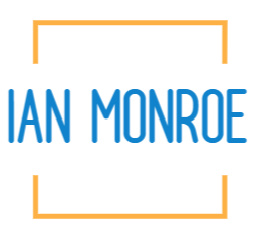
This post is an amalgam of several emails I sent to a private journalism-related listserv. I’ve got a project brewing in the ol’ noggin relating to journalism, objectivity, and transparency. I figured I’d post this publicly, in the hopes of soliciting more opinions, so please feel free to post in the comments.
So, one of my pet peeves about the universe of journalism is the fact that most (primarily non-journalist) folks, and particularly those on the conservative end of the political spectrum, insist that journalists must be “objective” in their reporting.
This notion is, of course, under constant debate, but it has recently been brought to the fore by several cases, including Juan Williams, Keith Olberman, Helen Thomas, and Octavia Nasr, who was fired over a mere tweet which was seen by some folks as partisan.
See also this article on TechCrunch for some insight:
http://techcrunch.com/2010/07/08/we-need-more-opinions-in-news-not-less/
Frankly, I don’t believe that it’s possible for such a thing as genuinely objective reporting to exist in the real world. We might aspire to write just the facts, we might try our best to present every side of an argument without favoring one or the other, but ultimately, there’s no such thing as a human with no bias, and therefore by logical necessity, no reporting without bias.
Furthermore, because of the epistemological impossibility of “objective” reporting, I’m personally inclined to treat those who base their journalistic reputation on objectivity as suspect, because they either A) haven’t considered the philosophical consequences of their claim or B) they don’t believe that I’ve thought about it deeply enough to see their claims are bogus, or perhaps worst of all C) they genuinely DO believe that they are being more objective than anyone else, which is a level of self-delusion I’m not prepared to accept.
The primary benefit that a professional journalist brings to the table (in my opinion) is the impetus towards investigation and a willingness to discuss multiple points of view in their stories. Take for example Dave Weigel, who was fired from the WaPo for comments he made on a private listserv. Even though he didn’t personally hold the same beliefs as the folks he was reporting on, nobody was complaining about the content of his stories. He was reporting on a point of view that differed from his own, and apparently doing it well enough to satisfy the conservatives of the world (feel free to correct me if I’m wrong on this point). Ultimately, he was undone by expressing his personal opinions in a private forum.
Perhaps it is that the real advantage of professional journalism over “citizen journalism” is in fact that it requires a certain amount of exposure to ideas which may not completely cohere with your intellectual predisposition? Maybe what the NYT, Dallas Morning News, and Chicago Tribune offer is the opportunity to encounter a bit of cognitive dissonance from time to time. It may not be comfortable, but that just means you’re thinking about it.
I thought Mathew Ingram presented it well in this article on GigaOm :
David Weinberger, a former fellow with the Harvard Berkman Center for Internet & Society, has also argued that “transparency is the new objectivity,” and that readers can now make up their own minds about whether journalists are credible or not by looking at the sources of the news they are reporting, rather than relying on the notion of objectivity. “Transparency gives the reader information by which she can undo some of the unintended effects of the ever-present biases,” he said in a blog post last year. “Transparency brings us to reliability the way objectivity used to.” Transparency is also much more effective online because journalists can link to supporting evidence for their arguments, Weinberger said, instead of just relying on the principle of objectivity to buttress their opinions. “Objectivity,” he wrote, “is a trust mechanism you rely on when your medium can’t do links.”
Jay Rosen has taken to referring to the mythical objectivity which some journalists invoke as the “view from nowhere”, a term apparently coined by Thomas Nagel, and he’s got a lot of opinions which I find myself agreeing with on the subject.
Any thoughts from the noosphere on the subject? Is transparency the new objectivity? I’d love to hear your opinions in the comments.
